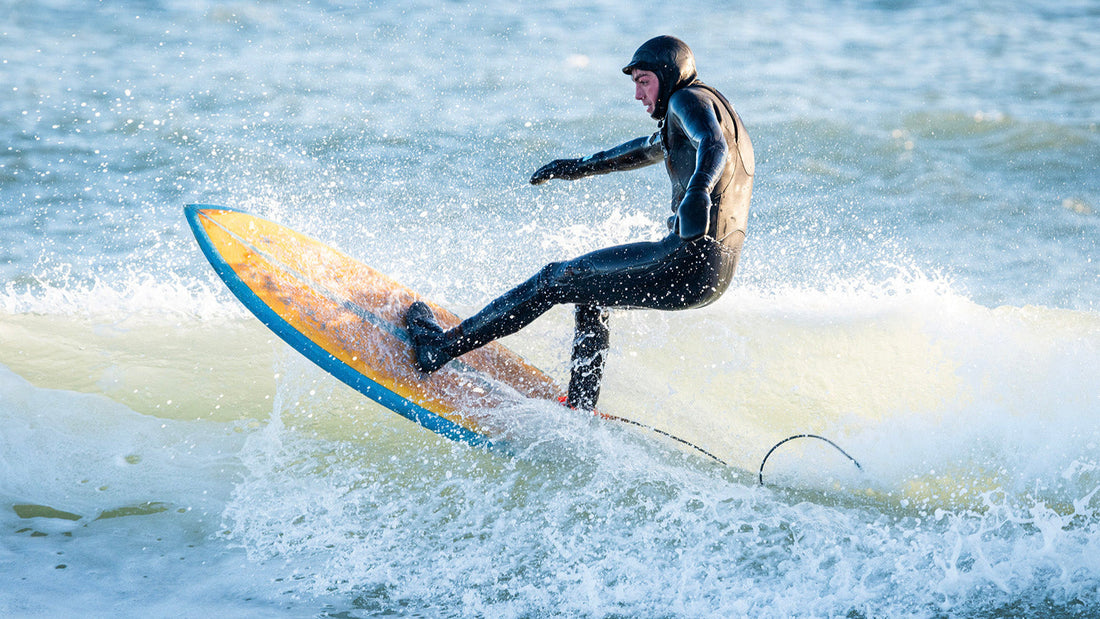
My First Time Surfing What No One Told Me
Share
Surfing has always seemed like the ultimate adventure — freedom, salt air, and riding waves like you're one with the ocean. So when I finally decided to try it, I thought I was prepared. I’d read the blogs, watched the YouTube tutorials, and even practiced my pop-up on the living room floor. But nothing really prepared me for my first time surfing. Here’s what no one told me — and what every beginner surfer should know.
1. The Ocean Is Stronger Than You Think
You’ll hear this all the time: “Respect the ocean.” It’s not just a phrase — it’s a warning and a truth. On my first paddle out, the waves looked mellow from shore, but once I was in the water, I realized how deceptive that view was. The current was strong, and just getting past the break took more energy than I expected.
Learn about rip currents, wave sets, and local surf conditions before you paddle out. Don’t underestimate the ocean’s power.
2. Paddling Is the Real Workout
You probably imagine surfing as standing on a board, arms stretched, wind in your hair. What no one tells you is that 90% of surfing is paddling — and it’s exhausting. My arms burned. My back ached and I hadn’t even caught a wave yet.
Strengthen your shoulders, core, and back before your first session. Even a few weeks of swimming or resistance training can make a big difference.
3. You Will Wipe Out — A Lot
I thought I might catch a few waves my first time. Spoiler alert: I didn’t. I wiped out. Repeatedly. I swallowed a gallon of seawater, got tossed like laundry in a spin cycle, and came up with a mouth full of sand. But somehow, it was still exhilarating.
Falling is part of learning. Every pro surfer once wiped out just like you. Embrace it and keep going.
4. Soft-Top Boards Are Your Best Friend
I rented a massive soft-top board, and thank goodness I did. Sure, it wasn’t sleek or cool-looking, but it was stable, buoyant, and forgiving. Exactly what I needed.
Don’t be tempted by shortboards or flashy designs. Start with a foam board that makes learning easier and safer.
5. It’s a Mental Game, Too
Surfing isn't just physical — it's mental. Between fear of waves, the frustration of missed attempts, and the humility of watching kids half your age shred beside you, it’s easy to get discouraged. But the moment you feel your board glide down the face of a wave — even if only for two seconds — all that struggle becomes worth it.
Stay patient, celebrate small wins, and keep a sense of humor. Progress is slow but incredibly rewarding.
6. Surf Etiquette Is Real and Important
On land, I’m polite. In the water, I had no idea what the rules were — and it showed. I accidentally dropped in on someone else's wave and got a stern lecture. It wasn’t fun, but it was a learning moment.
Learn the right-of-way rules, don’t snake waves, and always be respectful of locals and other surfers.
7. Community Over Competition
Despite the awkward stumbles and rookie mistakes, I found an unexpected gift in the water community. A fellow surfer gave me tips between sets. Another helped me adjust my stance. The vibe was more supportive than competitive — a reminder that surfing is more about shared joy than solo glory.
Be friendly, ask for advice, and show gratitude. Most surfers remember their first day and are happy to help.
What I Wish I Knew Before Surfing for the First Time
My first time surfing was not Instagram-worthy. It was awkward, tiring, and slightly embarrassing. But it was also one of the most invigorating experiences I’ve ever had. Surfing taught me resilience, humility, and how to laugh at myself — all while getting a serious workout and connecting with nature.
So if you’re considering learning to surf, go for it. Just go in with the right expectations — and a lot of sunscreen.
